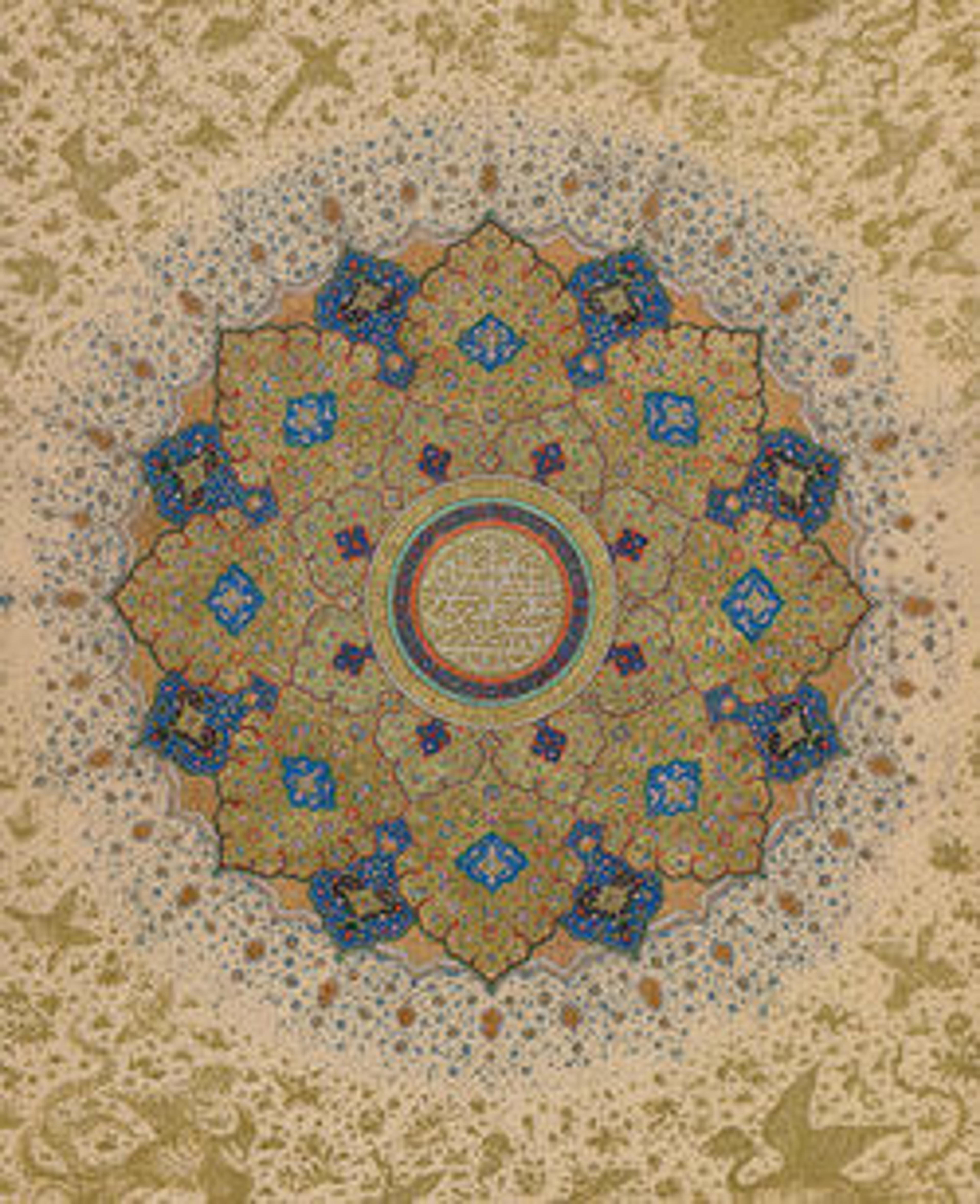Fragment of a Cornice Panel
This panel comes from the site of Tepe Madrasa in Nishapur. The excavators found this and other fragments broken and piled up in a room, so it was unclear where this particular panel had come from, although the curvature of the upper elements suggests it came from a cornice decorating the top part of a wall. The decoration of rows of leaves on vines and projecting pineapple-shaped bosses is quite different from the stucco found at other parts of Nishapur, but resembles stuccowork decoration from other cities in Iran and Central Asia of the same period.
Artwork Details
- Title: Fragment of a Cornice Panel
- Date: 10th century
- Geography: Excavated in Iran, Nishapur
- Medium: Stucco; applied, and carved
- Dimensions: H. 28 1/16 in. (71.3 cm)
W. 29 5/16 in. (74.5 cm)
D. 6 7/8 in. (17.5 cm)
Wt. 91 lbs (41.3 kg) - Classification: Stucco
- Credit Line: Rogers Fund, 1940
- Object Number: 40.170.441
- Curatorial Department: Islamic Art
More Artwork
Research Resources
The Met provides unparalleled resources for research and welcomes an international community of students and scholars. The Met's Open Access API is where creators and researchers can connect to the The Met collection. Open Access data and public domain images are available for unrestricted commercial and noncommercial use without permission or fee.
To request images under copyright and other restrictions, please use this Image Request form.
Feedback
We continue to research and examine historical and cultural context for objects in The Met collection. If you have comments or questions about this object record, please complete and submit this form. The Museum looks forward to receiving your comments.
